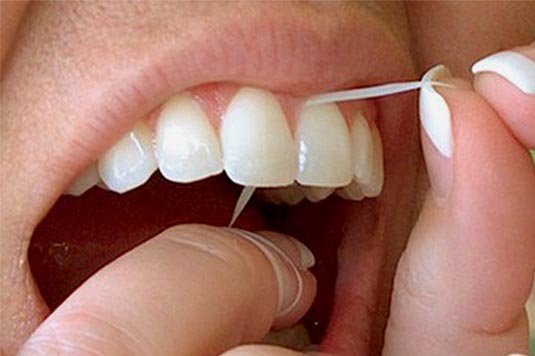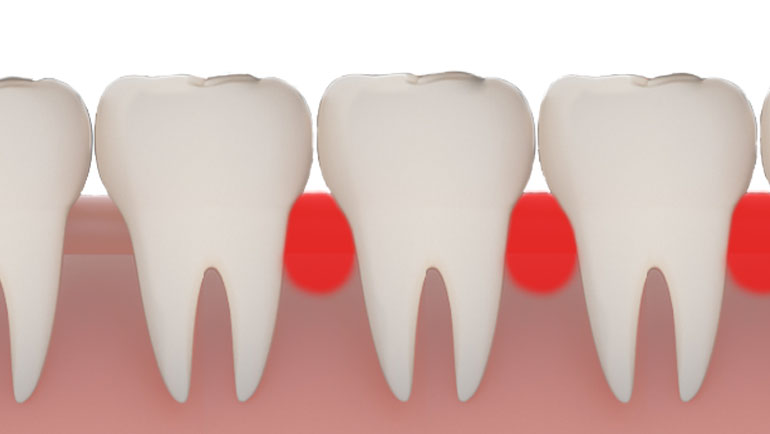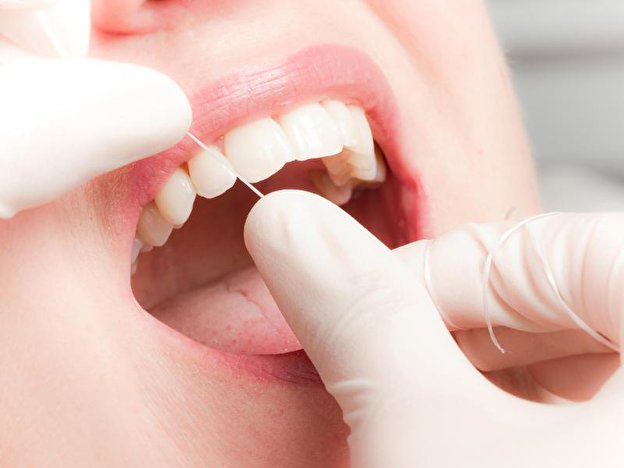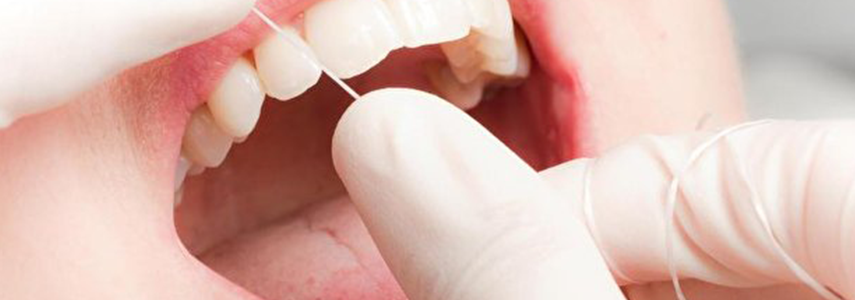Flossing is often overlooked because it takes longer for oral hygiene. The use of dental floss, however, guarantees effective cleaning of the teeth, safeguarding the oral cavity from pathologies related to the accumulation of plaque and tartar.
Using dental floss reduces the risk of periodontitis

The acute stage of a periodontitis leads to serious complications such as tooth mobility and subsequent fall. Since it is an inflammation, periodontitis can be the consequence of a simple untreated gingivitis.
The common origin of these inflammatory diseases is the accumulation of plaque. Cleaning your teeth with a toothbrush alone does not always manage to remove plaque from the entire surface of the tooth. If we consider a single tooth, it consists of 5 faces, the four lateral and one upper.
The lateral faces of a tooth are adjacent to each other and the space between two teeth is referred to as the interproximal space. Flossing is the only way to better clean the space between your teeth and prevent plaque from building up.
Decrease the risk of periodontitis with effective oral hygiene
The results of research highlighting the reduction of the risk of periodontitis in patients who use dental floss have been published in the medical journal Journal of Clinical Periodontology.
The research involved 6939 patients aged 30 and over, monitored over a three-year period, from 2011 to 2014.

Patients underwent regular periodontal monitoring and were asked to answer questionnaires in which generic data were collected:
- age and gender;
- smoker or non-smoker;
- alcohol consumption;
- frequency of dental visits;
- educational qualification and income.
To these generic data was added the specific detection on the frequency with which they used dental floss:
- 0 – 1 day a week;
- 2 – 4 days a week;
- 5 or more days in a week.
Does flossing prevent periodontitis?

From all the data collected, it emerged that the constant use of dental floss significantly reduces the risk of periodontitis. For patients involved in the research who flossed one or more days a week, the risk of periodontitis was reduced by 23% compared to those who did not floss in their daily hygiene.
Considering the other information collected during the research, even those who have made at least one dental visit during the year have a lower risk of contracting periodontitis, as well as limit the use of alcoholic beverages and smoking.
Research has therefore confirmed that using dental floss, having a healthy lifestyle and planning dental visits during the year significantly reduces the onset of inflammation and related complications.









